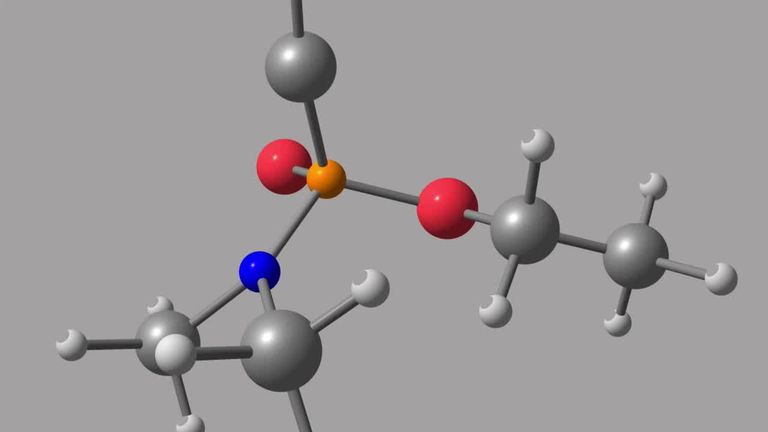Russia has been spying on Skripals for five years, security adviser says
Experts from military intelligence agency the GRU targeted Yulia Skripal's emails as far back as 2013, according to Mark Sedwill.
Friday 13 April 2018 18:33, UK
Russian intelligence has been spying on the Skripals for at least five years, national security adviser Mark Sedwill has said.
Cyber experts from military intelligence agency the GRU targeted Yulia Skripal's email accounts as far back as 2013, according to the security chief.
A programme set up in Russia in the 2000s trained personnel from "special units" in the use of chemical warfare agents, he said, including investigating how nerve agents could be administered through door handles.
In an analysis of samples taken from the home of the Skripals, the highest concentrations of toxic chemical novichok, thought to be responsible for their poisoning, was found on door handles.
Sir Mark made the claims in a letter to NATO secretary general Jens Stoltenberg.
:: Miracle recovery: How the Skripals survived
The Russian Embassy published an 8,000-word report into the Skripal poisoning row on Friday, which is mainly a timeline of the events they claim unfolded.
The report repeated the Kremlin's line that Moscow had "nothing to do" with the Salisbury attack, and accuses the UK of the "forcible detention or imprisonment" of the ex-Russian spy and his daughter.
At a press conference arranged before the release of Sir Mark's letter, Russian ambassador to the UK Alexander Yakovenko said he had not been made familiar with the allegations detailed in it.
"If somebody was spying, why were the British services not complaining about that," he said.
"We didn't hear any signs, any applications from the British side."
Russia has continued to deny any involvement in the poisoning of the former spy and his daughter, asking for further investigation into what Sir Mark describes as an "attack".
Thursday's note, which gave evidence for the UK belief Russia was responsible for poisoning the Skripals, followed a report by the Organisation for the Prohibition for Chemical Weapons.
The OPCW announcement backed Government findings that novichok was involved, while refraining to name Russia as a possible source.
Following the release of the report, which said the samples taken from the Skripals and Salisbury showed the substance was of a "high purity", Foreign Secretary Boris Johnson wrote: "There can be no doubt what was used and there remains no alternative explanation about who was responsible - only Russia has the means, motive and record."
Sir Mark backed Mr Johnson's assertions in his note, adding that Russia had "produced and stockpiled small quantities of novichoks" under the training programme on chemical weapons in the 2000s.
It also detailed a perceived motive for the targeting of Mr Skripal, saying: "Russian intelligence services view at least some of its defectors as legitimate targets for assassination."
"I know that NATO will remain seized of the need to confront the increasingly aggressive pattern of Russia behaviour of which the attack in Salisbury was an acute and recent example," Sir Mark concluded.


![鈥疨ic: CPS
Images of two defendants in fake ID seized from Bulgarian gang found guilty of spying for Russia in a huge espionage operation from a guesthouse in Great Yarmouth. Left is Katrin Ivanova, [DOB: 01/07/1991], is of Harrow, north-west London. Right is Tihomir Ivanchev, [DOB: 31/07/1985], is of Acton, west London](https://e3.365dm.com/25/03/192x108/AG百家乐在线官网news-katrin-ivanova-tihomir-ivanchev_6849259.png?20250307175120)


